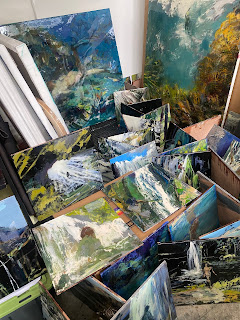The blank blank page: N M Browne
and though I like the potential of white space, the process of filling it with words is no easier than when I first started. Indeed it may be harder because the great thing about being a beginner is the naive tendency to underestimate weaknesses and overestimate the chances of securing a six figure book deal.
To all of us the blank page is often more fantasy than the fantasy we intend to write. When I teach, students are keen to tell me what they are going to do with the blank page, the misunderstandings they will clarify, the profound emotion they will convey, the subtly delineated transformations their characters will undergo: the blank page is so full of potential.
I have blogged before about my love of the blank page when writing fiction. I enjoy the moment before I've messed everything up. I am familiar with the delete button and the deadzone of dropbox with its abandoned projects and half cocked ideas. I am confident enough to know when something is working and when it needs more effort than I am prepared to expend to put it right.
It is different with poetry. I am not really a poet: I am a dabbler, a dilletante, a with a breezy approach to failure and a devil may care attitude to the destroyed potential of the filled page. It's not surprising that I don't know what I'm doing - this is new and I know nothing. Then I look back at my poorly curated word files and see their dates and realise I have dabbled in poetry for some years now and perhaps need to change my attitude, take responsibility, take it seriously, be better at it.
The blank page of the unwritten poem is a lawless Wild West, an emotionally charged Bedlam, a Star Trek into the unexplored. There may be a story in the words. Or not. They may follow a form. Or not. The blank page itself can be redesigned around the words and encompassed by the poem. What's all that about? With poetry the more I read, the less I know and my hope for the potential in the blank page is quietly smothered by all that whiteness, like snow, or a clean white cotton sheet. I am trying to write a series of poems to accompany my sister's paintings for her new exhibition 'Flux.' She is an award winning and hugely talented painter and I am a neophyte poet still. There are a lot of blank page: that's a lot of potential to be destroyed. But, poet or novelist, no writer can live with a blank page for long.
I can't worry about it any longer.
I'm going in.
I may be some little time.

Comments
The ease of editing on a computer might have something to do with why it can take so long to fill a page these days? My inner critic is always interrupting me.